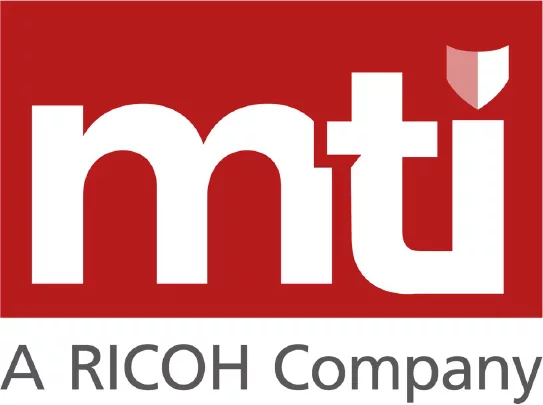This article was originally posted by Pure Storage on their website by Melody Zacharias, Sr. Microsoft Solutions Manager at Pure Storage.
With the global growth of data centres and the environmental impact they have, organisations are under pressure to make more sustainable choices and do more to help the planet. Environmental sustainability and governance (ESG) is at the top of many executives’ list of priorities for 2022.
Amazon, Microsoft, and Google all have aggressive goals for sustainability in the coming years. Microsoft aims to be carbon negative by 2030 while Google is working toward running on 24/7 carbon-free energy by then. What these companies have in common is a combination of actions they’ll be taking to reach their goals. These include reducing space and offsetting carbon footprints with renewable energy and consolidation.
According to the Uptime Institute, electricity is the largest operational cost for data centres, and, for the last two years, it’s been the leading cause of outages in them. The latest annual outage analysis by the Uptime Institute shows that the top three causes of data centre downtimes are power related. In addition to the environmental impact, data centre outages can cause significant revenue, time, and reputational damage.
Since 2007, the efficiency of data centres has been measured by power usage effectiveness (PUE). While PUE doesn’t capture the efficiency of the data centre, it is a proxy for the power consumption for the facility as a whole, as well as the IT equipment. In a look at the gains made from 2007 to 2013, large improvements in PUE were attributed to better airflow management, optimised controls, replacement of aging equipment, and retrofitting with highly efficient cooling.
Since then, gains in PUE have stalled. There was even a spike in PUE in 2019. This may have been caused by decisions that were made based on the power density of IT racks. The power density may have influenced infrastructure and engineering choices in layout, as well as how cooling and power distribution were architected. The Uptime Institute survey shows that while PUE flatlines after 2013, it’s due to facilities that underestimate density, struggle to deploy the latest systems, and then run out of power.
In recent years, organisations have been placing more focus on environmental initiatives, not just cost savings. They’re seeking solutions that are environmentally forward-moving and cost savings that have the greatest environmental impact. According to the “IDC FutureScape: Worldwide Future of Digital Infrastructure” report:
“By 2024, 75% of G2000 digital infrastructure RFPs will require vendors to prove progress on ESG/sustainability initiatives with data, as CIOs rely on infrastructure vendors to help meet ESG goals.”
This impact isn’t just on the end user or customer. Customers are also relying on vendors to help solve these issues for them. They’re looking for environmentally conscious solutions and options that have less impact and smaller footprints and also help reduce data centre costs.
Green Values
When it comes to data centres, “green” has multiple meanings. The environmental impact isn’t the only reason to take note of the power consumption going on in data centres worldwide. Companies can gain tangible value from the environmental footprint, publicity, and goodwill that these initiatives can provide. But, there are additional benefits that are easier to see and calculate on the company’s bottom line.
The reality is that power consumption costs green—and lots of it. When it comes to the company’s bottom line, it’s difficult to uncouple money from the drive to “go green.” Whatever the reason that drives executives to make a change for a greener, more sustainable data centre, everyone wins.
Increased Performance with Consolidation
Consolidating databases in the right circumstances and with the right criteria can allow organisations to reduce licensing and infrastructure costs while also gaining the environmental benefits of it.
Pure Storage® recently released FlashArray//XL to support enterprise workloads and the consolidation needs of production databases. The expanded size of FlashArray//XL can handle the largest of workloads and the most demanding of performance requirements for latency, I/O operations per second (IOPS), and throughput, regardless of the database.
At Pure, we understand the challenges around consolidation, so we created FlashArray//XL to help enterprises harness the potential of expanding data sets and the expanding data centre. FlashArray//XL tackles consolidation issues with industry-leading data reduction and compression that allows for a reduced footprint. Consolidating more workloads on fewer arrays simplifies operations and reduces rack space requirements. Reduced power consumption and cooling costs help companies meet green data centre standards.
Pure understands the importance of efficiency. Pure solutions are efficient in space usage at all levels, from our data reduction to our use of AI to support the workload planner. They all contribute to the environmental reductions that are possible with AIOps planning and support with Pure1®. The workload planner and hardware simulators that project up to 12 months in the future allow for maximum planning of scaling, cloning, and migration-type projects. These tools can help all levels of your organisation meet corporate standards for green data centres through reduced power consumption and cooling costs to improve energy efficiency.
Go Green with Evergreen
Pure Storage Evergreen Storage™ subscriptions deliver value to your organisation with storage that is deployed once and stays modern with seamless hardware and software upgrades. Your Evergreen subscription includes all data services (including new features), controller upgrades on renewal, and on-demand upgrades with full trade-in credit. As your company grows, you can scale storage as needed—without downtime, performance impact, data migrations, expensive leases, or forklift upgrades. Evergreen simplifies everything about the data storage life cycle. Imagine storage that just works, delivering you six nines of availability on FlashArray™—including upgrades—all while meeting your corporate goals for energy efficiency and environmental impact.
MTI and Pure Storage can help you solve the most common challenges facing data engineers both now and in the future. FlashArray//XL offers dramatically improved capacity, next-level performance and scale, and a future-proof design that expands as your business grows. MTI and Pure are committed to a sustainable future and supporting our customers and partners with their journey of data growth in an environmentally sustainable way.
You can read the original post by Melody Zacharias here.
Next Steps
Ready to optimise your data infrastructure with MTI and Pure Storage? Contact us today to learn more about our services and how we can help your organisation thrive.

